Top 5 Big Name Director Movies of 2000
In the year 2000….
Alejandro González Iñárritu made his directorial debut with one of the best movies of the year.
In the year 2000….
Robert Zemeckis and The Coen Brothers added more classics to their treasury of great movies.
In the year 2000….
Cameron Crowe made, arguably, his best movie and his last great movie.
OK, so, it wasn’t funny, but I’m surprised it took me this long to pull out a classic Conan O’Brien bit for these lists. And it probably won’t be the last time. Let’s take a look back fifteen years at the the start of now well-known directors and some who are still great and one who is not so great anymore.
5) O Brother, Where Art Thou?
Directed by Joel and Ethan Coen
“We thought you was a toad!”
“Aw, George, not the livestock!”
“I’m a Dapper Dan man!”
“Jesus saves, George Nelson withdraws!”
This was the first Coen Brothers I ever saw and it holds a special place in my heart. My college roommate and my friends watched this movie all the time and it was a personal favorite. The lines above were commonly thrown about in normal conversation and could create a new, instant bond with someone if they knew what we were talking about.
While having almost completely caught up on the Coens filmography since college and found O Brother to be one of the Coens more curious, eclectic, and less put together films, I log this one away with The Big Lebowski in their canon of movies. Filled to the brim with quotable lines and memorable characters, the movie is a sum of its parts and unlike Lebowski, it fails to make it all tie together as well.
Now don’t get me wrong, this movie is brilliant and hilarious. With a plot and premise based in one of the Coens favorite subjects, ancient literature, the Homeric inspired brothers spin a fabulous yarn of three escaped criminals, led by Ulysses stand in George Clooney. A frequent callaborator with the Coens since this movie, Clooney is my favorite part of this movie in a part built for him. He’s a motor mouth, opinionated, condescending, and pessimistic; but he sure loves his Dapper Dan.
Of particular note is the cinematography in the movie. Sepia tones combined with all the warmed over, yellow green landscapes give off a rustic yet pastoral feel that contrast with the sheer silliness and quirky humor on screen. While you laugh and puzzle over the slew of references to The Odyssey, The Wizard of Oz, and Sullivan’s Travels, you are left mystified by the country beauty that feels like a slice of days long past. It’s a much more wistful view of the old country that would contrast so starkly seven years later in No Country For Old Men.
4) Cast Away
Directed by Robert Zemeckis
For reasons that remain a mystery to me, I watched this movie at least a half dozen times when it first came out in 2000. I don’t hold any particular loyalty to Zemeckis, who made a phenomenal film, nor to Tom Hanks, even though I like him a lot. I can only guess that my 16 year-old mind was taken by a spectacular movie with great performances and a unique story.
At the time, Tom Hanks seemed to be a shoe-in for Best Actor considering his co-star was a volleyball. While that did not come to fruition, Hanks can still stand proudly having made a movie that stands the test of time and is a particularly great performance from the legendary star. What makes this movie of a high caliber is Hanks’ one-man show on the island and the believability of his character, Chuck Noland. You experience his ups and downs, his hopes and failures, and it guts you and gives you so much joy.
It is a testament to Zemeckis’ filmmaking and range that this movie and Back to the Future are so different in everything all the way down to sound design, score, and tone. While BttF is pop everything, off-the-wall, and fun, Cast Away is silent, slow, and fittingly stripped of anything that could make it conceited or fad-ish. My only quibble is with the final third that feels slightly contrived and almost a tad too feel good. It might be Zemeckis’ biggest problem from movie to movie. His fuzziness and studio-ness can sometimes get in the way of a really good story. In Cast Away it is more pronounced than The Martian, but much less so than Forrest Gump. It balances the line well but does fall a little short at the end, but it is still a great movie with some iconic moments and volleyball.
3) Requiem For A Dream
Directed By Darren Aronofsky
If O Brother, Where Art Thou brings back fond memories, Darren Aronofsky’s sophomore feature film brings back sheer terror. It’s a film of arresting beauty and heart stopping sadness and despair. It’s one of those movies you do not enjoy, but recognize it for its accomplishment and artistry.
It stars a post-Labryinth pre-Hulk Jennifer Connolly and a post-Fight Club pre-Mr. Nobody Jared Leto as two of four high capacity, go-getters from Coney Island who succumb, both bodily and psychologically, to drug addiction. The mood of the film is extremely grim and unrelentingly dark. The movie leaves you with little hope and is probably the best PSA you could ever watch to not do drugs. The story, based on the book by Hubert Selby Jr., is frightening in its raw, disturbing portrayal of the effects of drugs on individuals, as well as families like Sara (Ellen Burstyn) and Harry Goldfarb (Leto). While often being lumped in with “drug movies” like Fear and Loathing in Las Vegas and Trainspotting, which also follows a group of four addicts, the movie, especially Sara’s story, deviates from the normal conventions of a drug movie and is resolutely negative towards drugs and drug culture.
What makes the movie so unbelievably depressing and dire is not just the story, but Aronofsky’s great filmmaking and direction. The camera is a subjective observer that produces what these drug addicted characters feel, fear, and want so badly. It doesn’t have an agenda tied to making light of drugs, ala Trainspotting, but rests in the heaviness and the toll of narcotics and addictive substances. It also doesn’t allow us to read much of anything into it. It’s frightening, visceral, and one of the most disturbing movies ever made.
2) Amores Perros
Directed By Alejandro González Iñárritu
What Requiem For A Dream is to depression and grimness, Amores Perros is to savagery and brutality. The title is apt—translated in English as “Love’s a Bitch”—and communicates not only the visceral level reading but a poignant reoccurring metaphor for each of the three main characters. We follow three unfortunate souls tied together by dogs, a car accident, and murder. It is divided into three overlapping stories that are three separate angles of humanity’s depravity and their unfortunate, yet vain decision making. This movie scream “all is vanity” in an echo of “the Preacher” from Ecclesiastes.
Iñárritu’s debut movie has many of the kernels of what would be his later movies like Babel, Birman, and the forthcoming The Revenant. It’s wildly unpredictable, incredibly fast-paced, yet surprisingly reflective. At the time, because of it’s narrative structure and bloody and depraved content, it was compared to Pulp Fiction. It shares a lot in common with another movie from 2000, Steven Soderbergh’s Traffic. All three movies pulsate with a drug-induced pace but all three have slightly different approaches to the violence and wickedness humans bring on one another. While Pulp Fiction is dark comedy, Traffic is a more serious drama, and Amores Perros is an amalgam of the two. There is a thread of dark humor in each story but leaves you feeling what the title suggests. A great movie and certainly an electric debut from the now controversial but heralded Mexican director.
1) Almost Famous
Directed By Cameron Crowe
After Jerry Maguire, Crowe was riding a wave of critical acclaim and the turn of the century release of Almost Famous seemed to be propelling him towards the upper echelon of Hollywood directors. Starring Kate Hudson, Billy Crudup, Jason Lee, Philip Seymour Hoffman, Zooey Deschanel, Frances McDormand, and Patrick Fugit as a stand-in for Crowe’s life as a young, under 18 writer for Rolling Stone Magazine. Fugit’s William Miller connects with an up-and-coming group, Stillwater, and travels with them across the country writing a story.
Not only does it contain many memorable scenes, but the empathy in each and every beat bleeds off the screen and has a sincerity and pathos in the writing and acting that few movies rival. Crowe clearly put his own experiences and his loves of music and writing into the movie, and it is not a matter of only good craft but deep felt heart and conviction. No other movie that I can think of captures the road life, love, rock n’ roll, coming-of-age, and all their travails more completely and effortlessly as this movie.
It is such a shame it would be the ultimate peak for Crowe. Every movie he puts out I hope he can get back to this place, and with each successive movie it dies. We want you back Cameron, and we’ll take about three quarters of this movie and we’ll be happy.


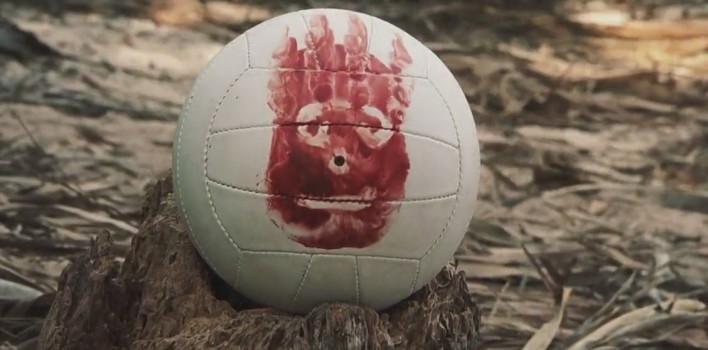
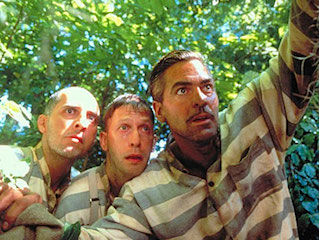
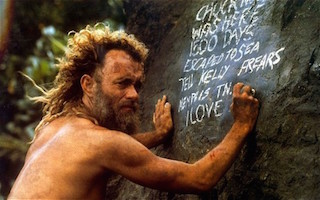
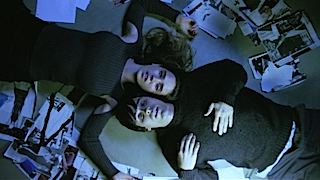
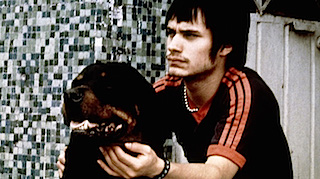
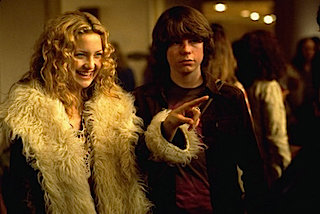
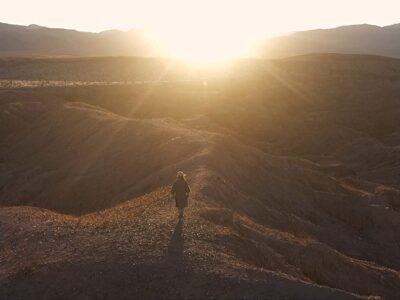
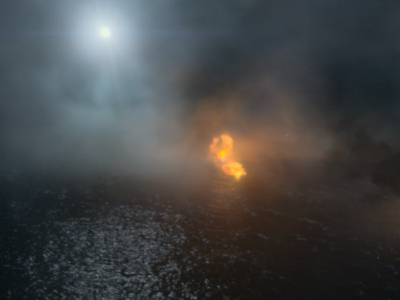
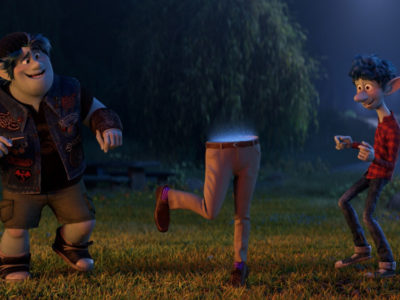


Pingback: Top 5 Movies of 2000 | Reel World Theology